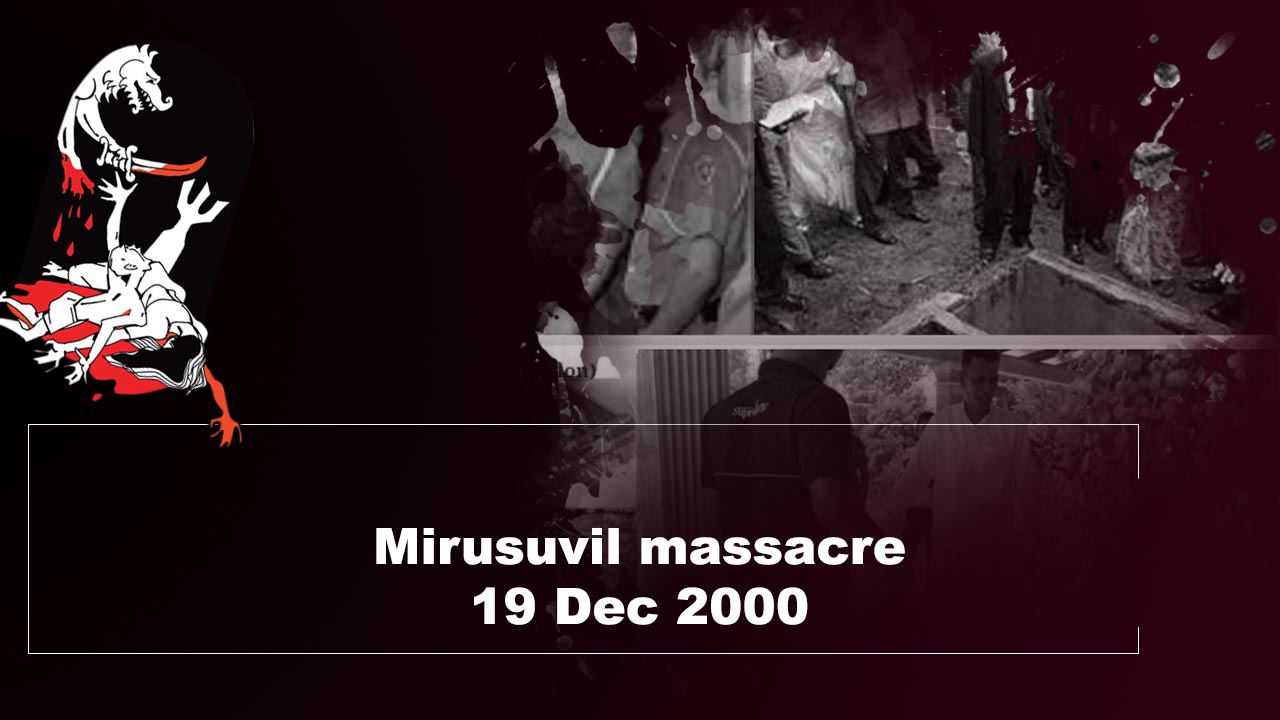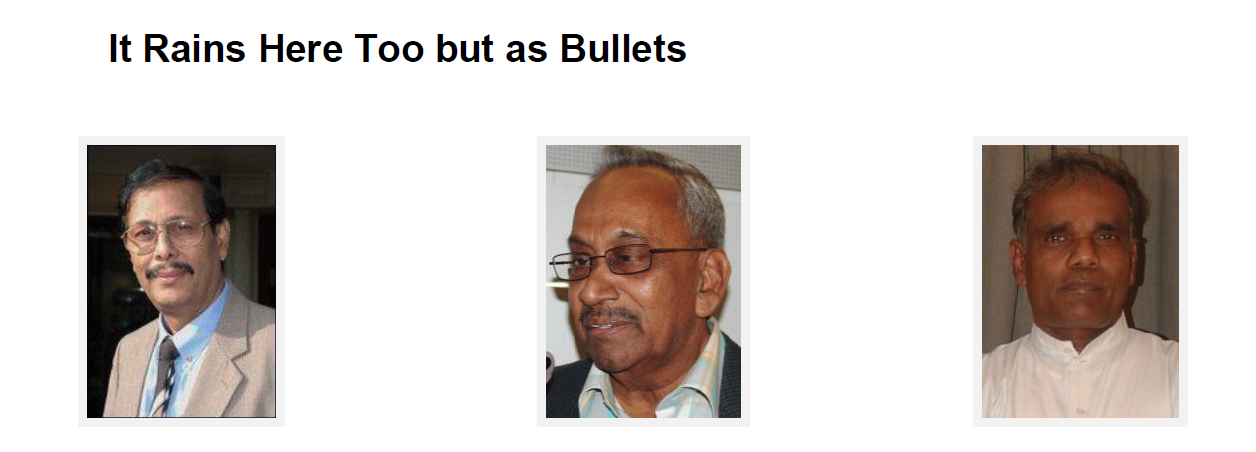Mirusuvil village is a settlement created to encourage women into employment. This village is near the Muhamalai area in Jaffna peninsula.
In the year 2000, as a result of military clashes throughout the Thenmaradchi area of Jaffna many people had displaced to the Vadamaradchi area. The people of Mirusuvil village had also displaced to Karaveddi in Vadamaradchi and were staying in the Navalar hall.
On 19.12.2000 9 people from Mirusuvil went to their village to collect essential items they needed for living. All 9 were arrested while they were collecting the things from their homes. The arrested people were blind folded and attacked by the military. One of those arrested managed to escape and return to Karaveddi to tell the fate of the others.
Based on the information given by Ponnaiah Maheswaran, who managed to escape, and the soldier who was on duty at that time, Lance Corporal Ratnayake, in the presence of the Police Inspector, Upali Gunawardhana, Deputy Police Inspector, Nimal Srinath, district judge, Annalingam Premshankar, and Point Pedro District Medical Officer, Kathiravetpillai, a mass grave was dug up on 25.12.2000. The eight bodies were buried only 2 feet below the ground.
The Tamil daily Veerakesari published from Colombo in a report quoted a hospital report on the inquest, “A body of a 21 year old man was recovered from the mass grave and was identified by Ponnaih Maheswaran and Lance Corporal Ratnayake. This body was wrapped in a red saree. Next the body of a male child was recovered. His skin was peeled and his body was pink. Throats of the bodies were cut with sharp knives and the arms and legs were chopped off.”
Available names of victims (name, occupation, age)
1. Sinnaiah Vilvarasa, Farmer, 41
2. Sellathurai Theivakulasingham, Farmer, 21
3. Vilvarasa Pirasath, Student, 05
4. Vilvarasa Piratheepan, Student, 15
It Rains Here Too but as Bullets
The period that commences on February 22, 2002 with the signing of the ceasefire agreement brought with it many changes. But did the Tamils of the North East reap any benefit from that agreement? At most it was a “no war- no peace” period. With the stalling of the peace talks less than two years later, the situation started to deteriorate yet again.
There was, however, a small window of opportunity in this short period to establish an institution to strengthen the human rights protection mechanisms in the North East of the country. Until then, with the two draconian laws, the Emergency Regulations (EMR) and the Prevention of Terrorism Act (PTA) in full force, continuously for years under a repressive regime, Tamils were afraid even to open their mouth, leave alone talk of human rights. Seizing this small window of opportunity, some religious leaders, academics, lawyers, members of parliament and trade unionists, many of whom have served in the Citizens Committees, Legal Aid Organizations etc. in their respective Districts in the North East, launched the North East Secretariat On Human Rights (NESOHR) with its Head Quarters in Kilinochchi. NESOHR was officially opened on July 9, 2004. Unfortunately, NESOHR had to pay a huge prize for pursuing its legitimate rights in forming a Human Rights Institution.
On 07 February 2005, NESOHR representative from Amparai District, Chandra Nehru Ariyanayagam, was murdered in cold blood by the Sri Lankan Army and a paramilitary group working with it. Chandra Nehru Ariyanayagam was also a former Member of Parliament.
On 25 December 2005, a founder Member of NESOHR, Joseph Pararajasingham, was brutally gunned down by the paramilitary working with the government of Sri Lanka, whilst he was attending the Holy mass inside St. Mary’s Cathedral in Batticaloa.
On 20 April 2008, our revered founder Chairperson Rev Fr Mariampillai Xavier Karunaratnam was killed by the Deep Penetration Unit of the Sri Lanka Army very near the church where he had just finished giving mass.
Three of NESOHR’s members have now been killed and some others have been threatened with death for their efforts on behalf of the rights of the oppressed people in an unfair, unjust, failed state. In the post -peace process period massacres have become genocide and the rest is history.

